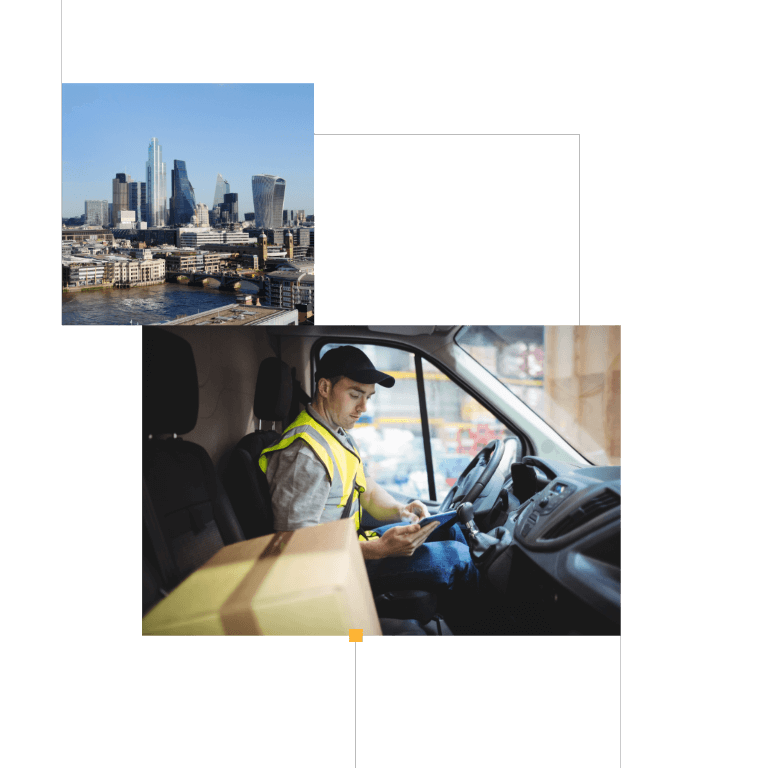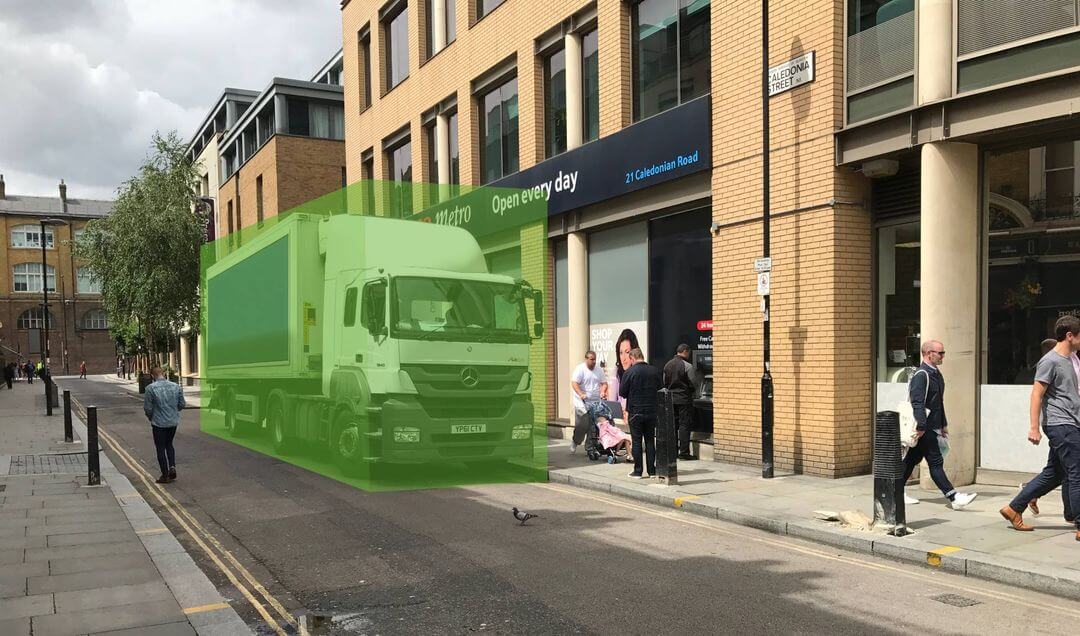Kerb is a digital platform that optimises kerb space in our urban areas. Our user-centric solution offers a seamless connection between logistics and local authorities.

Loads Easier.
Increasing demands on the kerbside and congestion pressures in urban environments mean that local authorities are looking for innovative ways to enable more flexible use of limited kerb space to be safe and offer equitable access for all.
By broadening the view of the kerbside from parking management only, the true extent of the ecosystem begins to unfold, as do the environmental and societal benefits.
Local Authorities
Commercial Operator
Local Authorities
Commercial Ops
and savings
Increased revenue opportunities can be achieved in cities, with a more accurate view on the hierarchy of users within each group.
Transparency of daily kerbside micro-transits means better management and allocation of space with the option to belter meet the hierarchy of user needs within the city.
With reduced congestion and CO2 and NOX emissions from fewer miles driven by circling delivery vehicles who are seeking suitable and safe places to unload.
or Safety
The wider community: through positive health outcomes from improved air quality and increased safety and a better urban realm for both residents and businesses.
and savings
More deliveries each day, with less time and fuel costs mean lower base costs and increased revenues for fleets – with less chance of PCN charges.
Less circling and idling time spent looking for a suitable and safe place to unload significantly increases driver efficiency, enabling up to 21% more deliveries per day.
The scheme could save up to 15,000 tonnes of CO2 per year inLondon alone and is complementary to graze charging and EV transition schemes.
or Safety
Less time on the roads means better safety road traffic outcomes for drivers and other vehicles.
Revenue and savings
Increased revenue opportunities can be achieved in cities, with a more accurate view of the hierarchy of users within each group.
More deliveries each day, with less time and fuel costs mean lower base costs, and increased revenues for fleets – with less chance of PCN charges.*
Efficiency
Transparency of daily kerbside micro-transits means better management and allocation of space, with the option to better meet the hierarchy of user needs within the city.
Less circling and idling time spent looking for a suitable and safe place to unload significantly increases driver efficiency and well being, enabling up to 21% more deliveries per day.
Environment
With reduced congestion and CO2 and NOX emissions from fewer miles driven by circling delivery vehicles who are seeking suitable and safe places to unload.
The scheme could save up to 15,000 tonnes of CO2 per year in London alone and is complementary to graze charging and EV transition schemes.
Community and safety
Creating a better urban realm for residents and businesses alike through improved air quality and increased safety and overall health.
Less time on the roads or in congestion means better safety for drivers and other users of the road network.

What is Digital Kerbside Management?
Digital Kerbside Management enables kerbside loading bay allocations to be digitally lifted on to a booking system and app and allocated in advance. It provides a platform whereby freight drivers can book slots for kerbside access to deliver goods and services to the right place at the right time – improving delivery certainty and reducing the risk of PC penalties.
The Kerb platform gives greater access in both permit only loading bay areas and restricted kerbspace, such as on double yellow lines, red routes or bus stop clearways with either a Permit Loading Bay* (PLB) or a Virtual Loading Bay* (VLB) booking.
Dynamic Kerbside Management - the key to unlocking a greener, smarter city future
We are transforming everything we typically think about the kerbside and ultimately evolving the sector from traditional parking to kerbside management. Kerb’s functionality can meet the needs of a range of city requirements, bringing order to the kerb through real-time digitalisation of bookable loading bay slots.
A bookable kerbside dynamically increases kerb space availability, giving cities more flexibility in how this scarce asset can be better utilised – think loading bay in the morning, cargo bike delivery bay in the afternoon, streaterie in the evening and taxi rank by night.
This will open up new revenue streams for Local Authorities and meet the needs of commercial delivery and freight businesses in more targeted ways.

“In ten years time we will look back and say, did we really allow hundreds of thousands of delivery vehicles to enter London every day to fight for kerb space on a first come first served basis? It seems so obvious when managing an airport that this is the case and now, with the tech available, it becomes just as obvious at the kerb.”
Find out more about how cities are working with us to solve their complex urban delivery challengers
